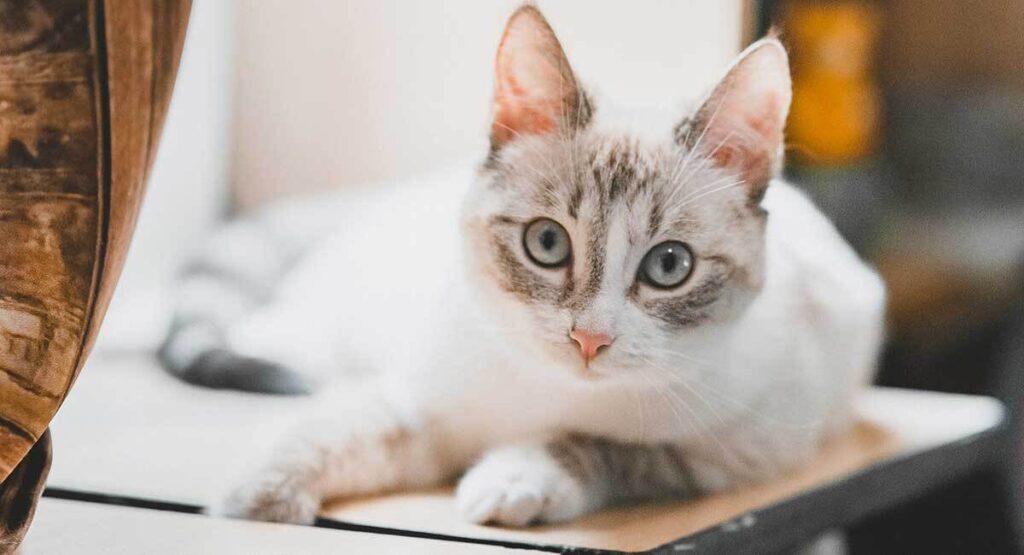
Cat breeds vary a surprising amount, and some make much better pets than others. Both in terms of temperament and health. In this complete cat breed guide you will discover the truth about your favorite felines. Whether you are searching for something unusual or going with the flow, we’ve got you covered.
Contents
Cat Breeds
You can find the most popular cat breeds, and their mixes, right here. From the fluffy Maine Coon to the sleek Abyssinian. Or the playful Bengal to the calm Ragdoll. Let’s get to know these amazing, unique kitties.
- Abyssinian
- American Bobtail
- American Shorthair
- Balinese
- Bambino
- Bengal
- Birman
- British Blue
- Chantilly cat
- Chausie
- Cheetoh
- Cymric
- Doll faced Persian
- Domestic Shorthair
- Exotic Shorthair
- Havana Brown
- Highland Lynx
- Himalayan
- Lambkin cat
- Maine Coon
- Munchkin
- Ocicat
- Oriental Shorthair
- Persian
- Pixie Bob
- Ragamuffin
- Ragdoll
- Russian Blue
- Savannah Cat
- Scottish Fold
- Selkirk Rex
- Siamese
- Siberian
- Skookum cat
- Snowshoe cat
- Somali cat
- Sphynx cat
- Tonkinese
- Turkish Angora
- Turkish Van
Comparing Cat Breeds
Stuck between two breeds? We’ve taken some of the most common cases for kitty confusion, and compared them for you. Helping you to decide which will fit best into your home life.
- Abyssinian vs Somali cat
- Birman vs Ragdoll
- Burmese vs Siamese
- Domestic longhair vs Maine Coon
- Egyptian Mau vs Bengal
- Exotic vs British Shorthair
- Maine Coon vs Ragdoll
- Maine Coon vs Norwegian Forest cat
- Norwegian Forest Cat vs Siberian cat
- Ragdoll vs Ragamuffin
- Savannah vs Bengal cat
- Maine Coon vs Savannah cat
Cat Breeds by Type
Know what sort of cat you want, but not familiar with the breeds? No problem! Whether it’s coat type, looks or temperament that matters most. Check out the categories below:
- Exotic Cat Breeds
- Extinct Cats
- Hybrid Cat Breeds
- Large Cats
- Long Haired Cat Breeds
- Fluffiest Cat Breeds
- Cleverest Cat Breeds
- Rare Cat Breeds
- Dog-like Cats
- Teacup Cats
Cat Colors
Looking for a cat breed with a particular color coat? Here are our complete guides to some of the most popular colors and color combinations:
- Albino Cats
- White Cat Breeds
- Black and Orange Cats
- Black and White Cats
- Orange and White Cats
- Tuxedo Cats
- Are Ginger Cats Male?
The range of colors different cat breeds come in is astounding. Even when you think you know exactly what a certain breed looks like you can still end up surprised. Let’s get to know some of the most unusual colors of some fun and funky cat breeds.
- Blue Point Siamese
- Egyptian Mau Colors
- Norwegian Forest Cat Colors
- Savannah Cat Colors
- Ragdoll Cat Colors
Cat Coat Patterns
Cat coat patterns range from striking to subtle. From the classic tabby to the amazing dilute tortie, and everything in between. Some colors and patterns even have an interesting impact on other things about your cat. Here are our complete guides to your favorite cat patterns.
- Dilute Torties
- Calico Cats
- Dilute Calico
- Tortoiseshell Cats
- Black Tortoiseshell Cats
- Tortoiseshell Calico Cats
- Blue Tortoiseshell Cats
- Tabby Cats
- Yellow Tabby
- Grey Tabby
- Mackerel Tabby
- Orange Tabby
- Spotted Tabby
- Cats That Look Like Leopards
- Chimera Cats
Here are some other distinctive features that come in a few different cat breeds:
- Cat Freckles
- Cat Eye Colors
- Cats with Blue Eyes
- Werewolf Cats
- Peterbald
- Manx Syndrome
- Donskoy Cats
